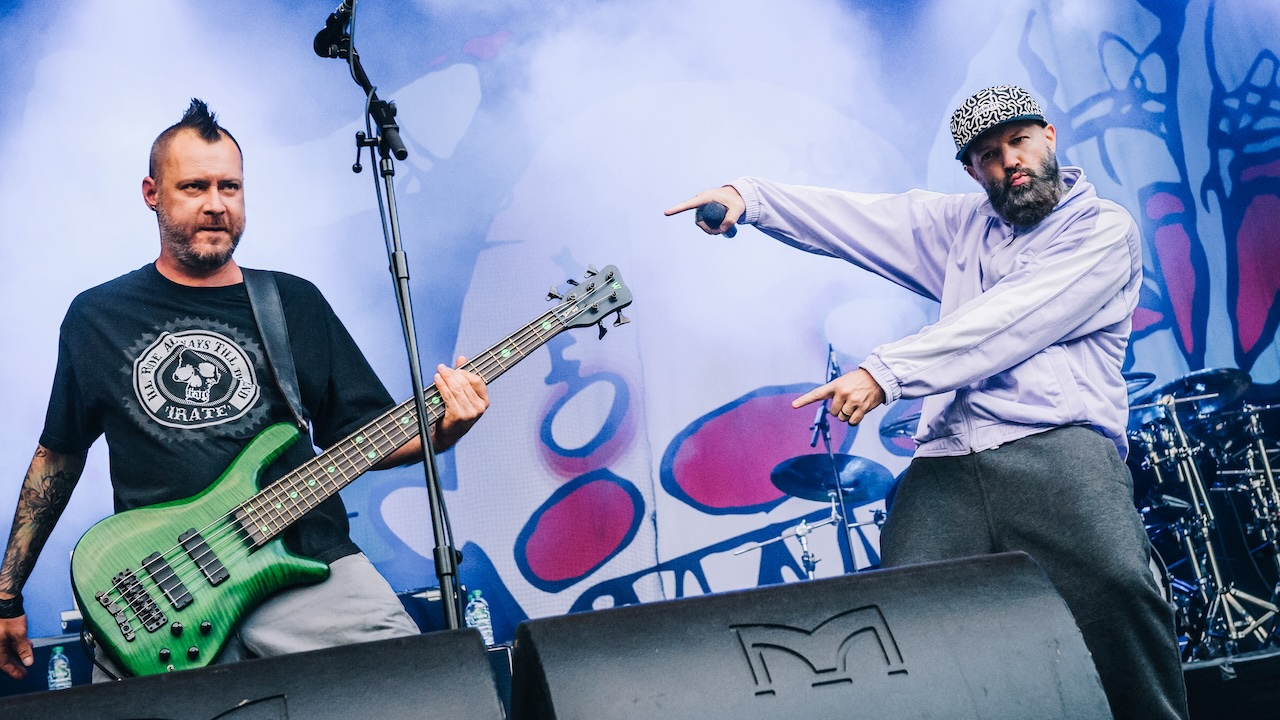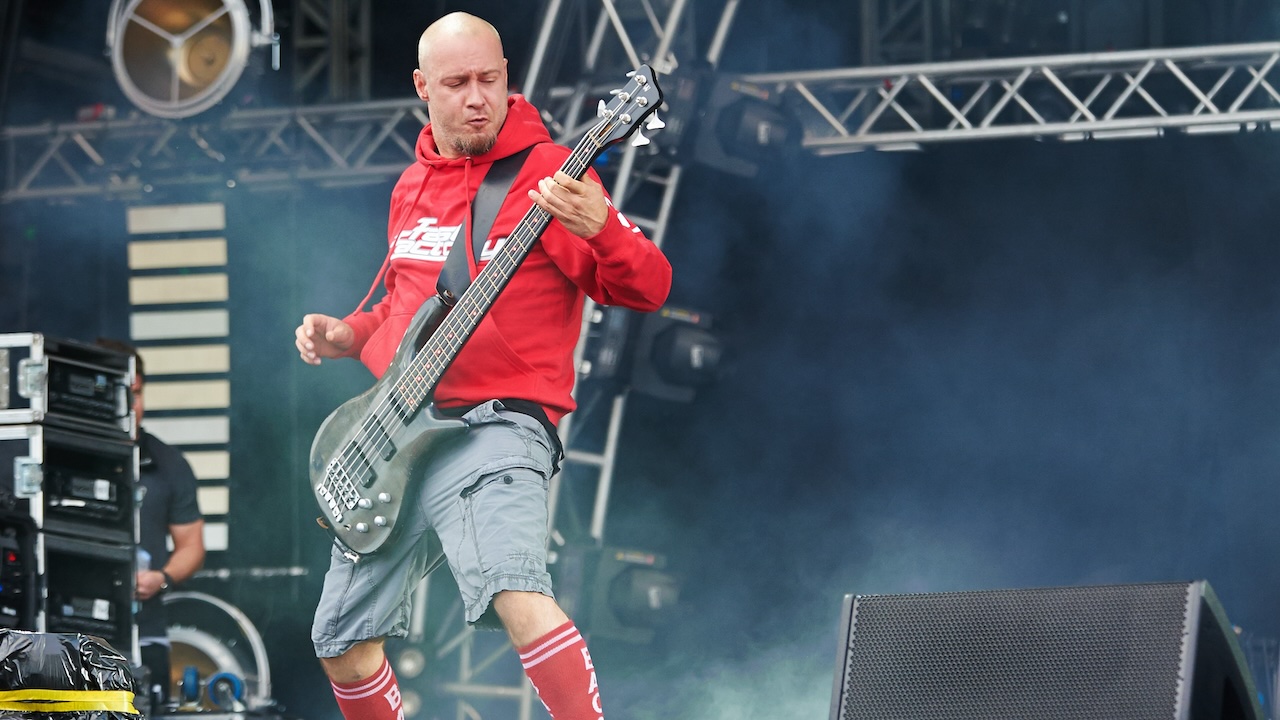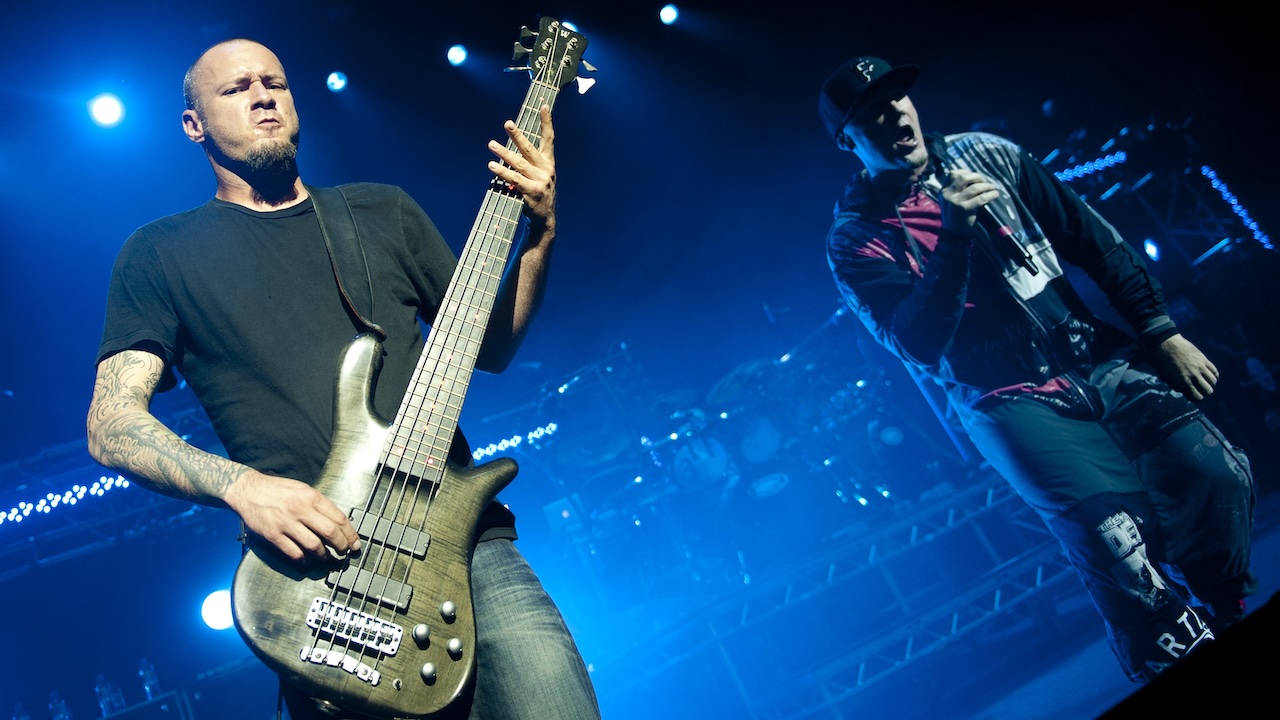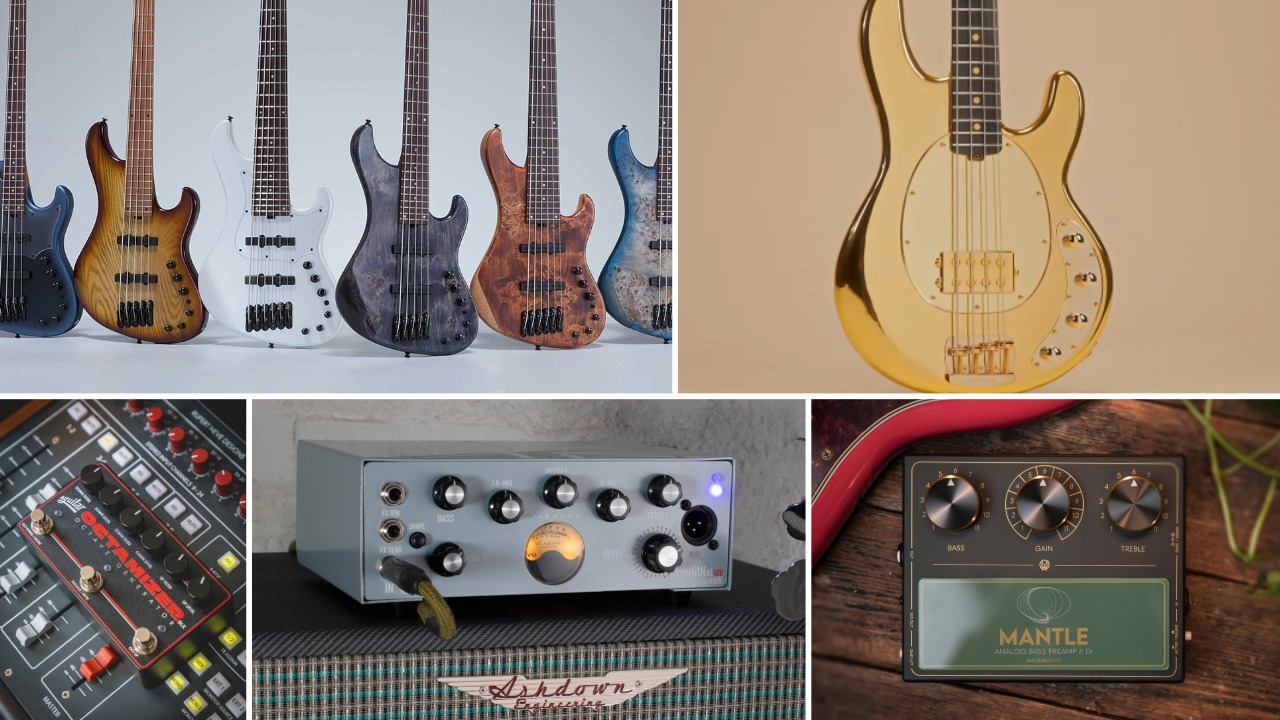“That bassline was the first thing that came out of my head. By the end of the soundcheck we had the whole song down”: Limp Bizkit remain one of the biggest nu-metal bands ever – but they wouldn't have taken those giant strides without bassist Sam Rivers
Limp Bizkit may be known for their planet-sized guitar riffs, but behind every monster moshpit there's a talented bassist

It's been two decades since nu-metal, the curious spawn of rap and rock that dominated the airwaves for approximately eight years after 1996, sank to the ground and expired, defeated by the new wave of garage and alternative bands that emerged after the millennium.
For those of us old enough to recall the heady days when every rock band had a DJ and generously-proportioned trousers, the music made by all nu-metal bands outside the biggest few has become rapidly dated.
The only bands from the scene still operating at any significant level of success are Slipknot, the resurgent Linkin Park, and Deftones – who survived because they evolved away from the original mallrat sound – and Limp Bizkit, who regularly played the world's biggest stages despite being relatively long in the tooth, musically speaking.
One reason for Bizkit's continued presence was late bassist Sam Rivers, a performer and songwriter whose contributions to the band's catalogue helped to keep them going years after their contemporaries bit the dust.
Take their song Rearranged, for example, which features a chordal bass riff that introduces and carries the whole tune: a subtle, unforgettably catchy line, it stands in stark contrast to the usual heavy metal bass cliches, and indeed to the sweary fury of the album, 1999's Significant Other, on which it appears.
“We were at a soundcheck and Wes came up with this little tapped figure on the guitar,” said Rivers in the January 2014 issue of Bass Guitar Magazine. “We started jamming to it and that bassline was the first thing that came out of my head. There's sixteenth notes going on all through that line, but by the end of the soundcheck we had the whole song down.
“It can be awkward when you're playing like that, because you can't hear everything very well, but sometimes special things come out of that situation.”
All the latest guitar news, interviews, lessons, reviews, deals and more, direct to your inbox!
Rivers’ musical relationship with guitarist Wes Borland, himself a maverick of the highest order, lies at the heart of his basslines.
“If Wes comes up with a monster riff, which he usually does, I ask myself, ‘Do I have room to move around it, or shall I just lay in the pocket and sit back with the drums?’ Sometimes locking in with the kick drum is enough. There's usually space to do something melodic in the bridge or somewhere like that.
“It's all about finding the balance, because at the end of the day it's really all about the song, not about anything else.”
Born in 1977, Rivers started his path towards mega-stadiums bright and early. “I started playing guitar when I was 13 or 14 years old. After a while, me and my friend got together and we didn't have a bass player, and he got better than I was at guitar, so I went to bass guitar.”

“I caught on pretty quick because I'd already taught myself guitar, so it was all about transitioning between chords to root notes and learning the things you need as a bass player.”
Hitting his mid-teens as grunge peaked, Rivers took his main inspiration from Seattle. “Jeff Ament from Pearl Jam is definitely my biggest influence. Les Claypool as well, and I always liked Justin Chancellor from Tool. They were the main ones. I also listened to guitar players as well. You've got to be able to play with other musicians, after all, so it's a good idea to study guitars.”
The funk also appealed to Rivers like it does to all of us, and indeed Limp Bizkit have a groovy edge in many of their songs, but you would never find him embarking on a slapathon.
“With Bizkit I've slapped a little bit over the years, but not traditional funk style. I’ve just used it to incorporate certain things. I can still hang, but some of the stuff these guys are doing blows my mind. I could never spend that much time on learning that. That whole raking thing, where you use multiple fingers: I've studied it, but I just look at it and think ‘No!’”
Gear-wise, Rivers was a keen user of a certain German brand. “I play Warwick Stage One Streamers, and they're all old, made between 2000 and 2004. The only thing I do to the Streamers that is different is I put Bassline soapbar pickups in them. Apart from that, everything is strictly off the shelf.
“I also have an old ’70s P-Bass, and two vintage Wals. I love Wal! They are a great-sounding bass. I've also got a couple of Spectors, which I love, and besides those I have a couple of Hamer 12-strings, which I used on our song Hold On. That was all 12-string bass, although I can't play it live because it hurts my fingers so bad!”
After years of a dry tone, Rivers began expanding his sonic palette even further. “For a long time I never played with effects, but then I added an overdrive pedal and blended it with my dry signal, so you get a little bit of grit on it. I'm also using the Cry Baby Bass Wah, the one where you don't have to step on a pedal to ignite it. I like to use it as a filter too, so it slowly builds in.
“I'm also really in love with Black Cat pedals, and one of my main focuses is Prescription Electronics Depth Charge Bass Fuzz. That has a blend on it as well, and it sounds amazing on bass.”
Live, Limp Bizkit are an impressive force, helped along by the commercial level at which they operate. “Depending on the tour, I like to have at least five basses with me, but if we're overseas and there's a budget to think about, I'll go with three or four. We play in C#, and then we drop that to B, so I'll have one of each.”

“I love playing four- and five-strings, but when I play a six-string I start turning into a guitar player because of the extra high string. I like fretless and upright too, and I have those as well. It's just a case of finding which bass frequencies work best, especially as we have a DJ in the band as well as a drummer.”
Joel McIver was the Editor of Bass Player magazine from 2018 to 2022, having spent six years before that editing Bass Guitar magazine. A journalist with 25 years' experience in the music field, he's also the author of 35 books, a couple of bestsellers among them. He regularly appears on podcasts, radio and TV.
You must confirm your public display name before commenting
Please logout and then login again, you will then be prompted to enter your display name.




